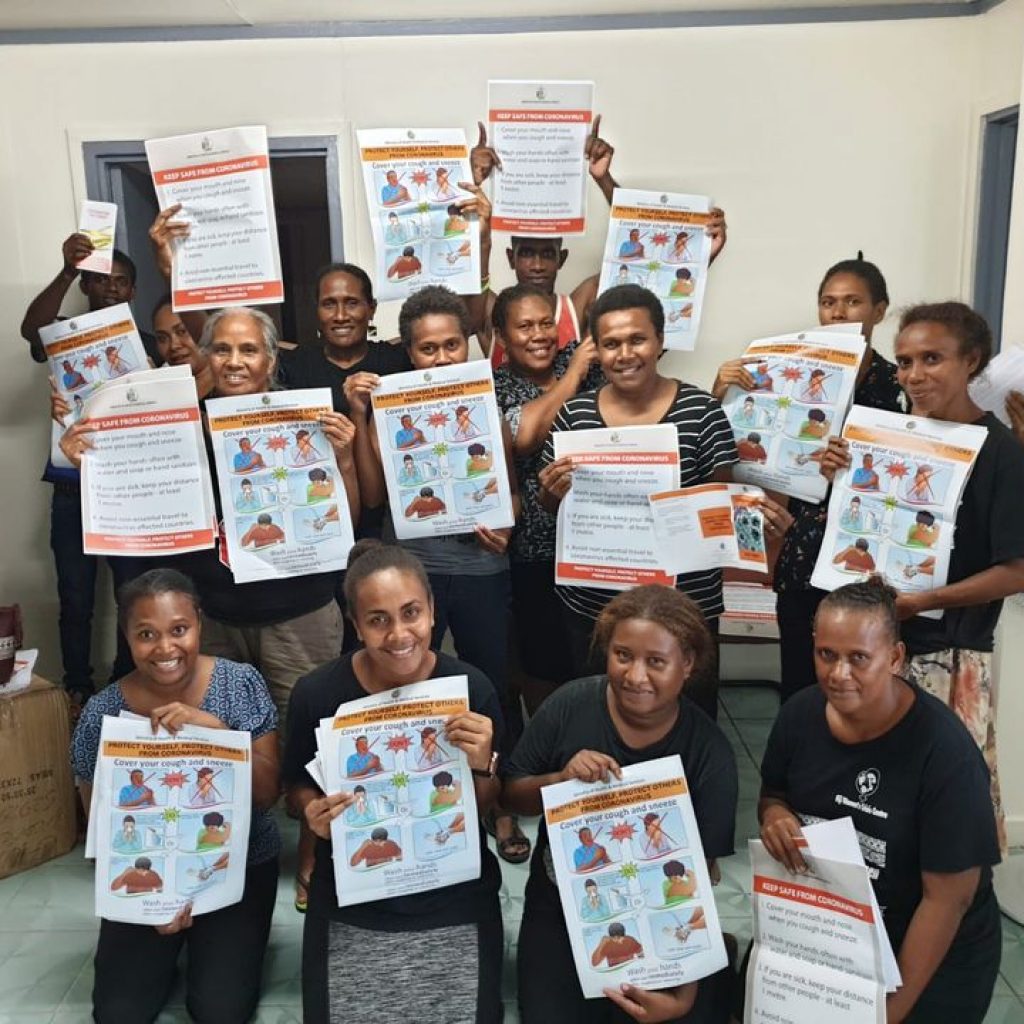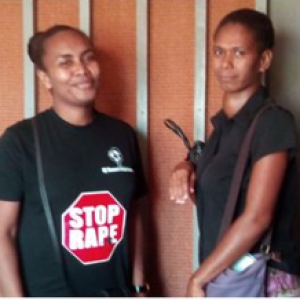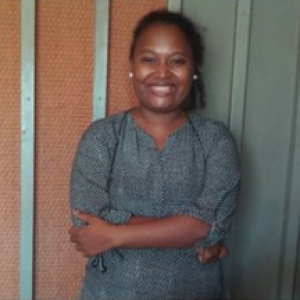
This gender-based violence service in Solomon Islands is ensuring rural women are not left behind
People in the Pacific are no strangers to prepping for crises. Having experienced numerous natural disasters and emergencies over the years, they knew about the potential knock-on effects when COVID-19 finally hit their shores.
Time and time again, we have seen how crises heighten tensions within households, limiting access to essential resources and making it harder for women to access support services. As a result, it is common to see heightened rates of gender-based violence in their aftermath.
When COVID-19 arrived in Solomon Islands, things were sadly no different.
Gender-based violence in Solomon Islands
Made up of approximately 990 islands where over 80 different languages are spoken, Solomon Islands are an incredibly diverse and complex place. Known for its lush landscapes surrounded by idyllic blue waters, the vast majority of the Islands’ population live a semi-subsistent lifestyle in rural areas.
While picturesque, this can make it incredibly difficult for women to access emergency services. Despite historically holding a valued position within society, women in Solomon Islands now face widespread discrimination, gender-based violence and inequality. The Islands have one of the highest rates of gender-based violence in the world, with approximately two thirds of women aged between 15 and 49 reporting having experienced physical or sexual violence from an intimate partner at some point in their life. Within this, over a third of women report having been sexually abused before the age of 15, most often by a male acquaintance.
This has only been made worse by the arrival of COVID-19 in the Pacific last year. The fear and anxiety caused by extended lockdowns that are forcing women to isolate with their abusers, in addition to the increased economic strain on families it has brought about, has led to increased levels of domestic violence.
For our partners in the region, it’s meant pivoting their work and finding creative ways to continue supporting women in these difficult times.
Ensuring service delivery during a global pandemic
Family Support Centre, one of IWDA’s partners in the region, has quickly responded to this changing situation and the rapidly escalating number of women and girls experiencing violence from their husbands, partners and other family members as a result.
 |
 |
The Centre’s work focuses on ensuring women and girls who are survivors of violence are able to access high quality free counselling, legal services and case management support. Run by nine volunteer committees, it is one of the only service providers operating in Honiara – the capital and largest city of the Solomon Islands.
In response to the challenges posed by COVID-19, the Centre has had to change the way they work, moving away from face-to-face operations to remote counselling sessions via mobile phones. They increased their service provision by almost 587% in 2020, not only due to the increased demand created by COVID-19 but also as a result of their advocacy work and education that has led to increased client demand, alongside increased geographical reach and stronger organisational capacity.
Since the start of outbreak, Family Support Centre has also shifted its activities to incorporate messaging around hygiene and health information. This has included creating posters to inform the public on proper hand hygiene and social distancing practices while coordinating the distribution of hygiene kits. In rural areas where information can travel slower and be harder to access, the Centre’s work has been particularly welcomed by local communities.

Through newspapers, radio announcements, social media and television programs, they are also raising awareness of the links between COVID-19, restrictions on movement, the loss of livelihoods and the likelihood women and children will experience violence during this time.
This year, they have conducted a number of sessions in rural communities to raise awareness of gender-based violence, including a recent workshop conducted in high schools to discuss the topic of child abuse, a four-day workshop designed to develop a deeper understanding of violence against women and enable participants from the Temotu Province to better respond to cases in addition to running training sessions for police front liners in Honiara on responding to cases of gender-based violence.
Despite the difficulties the pandemic has brought about, Family Support Centre has demonstrated incredible leadership in their work to address violence against women and girls. They have found new ways to continue providing essential support services to women and girls in crisis, successfully adapting to an incredibly complex context, all while furthering their advocacy work to ensure that communities are better equipped to address gender-based violence.
Family Support Centre is funded by the Department of Foreign Affairs and Trade (DFAT) through the Pacific Women Shaping Pacific Development Grant with support from IWDA.